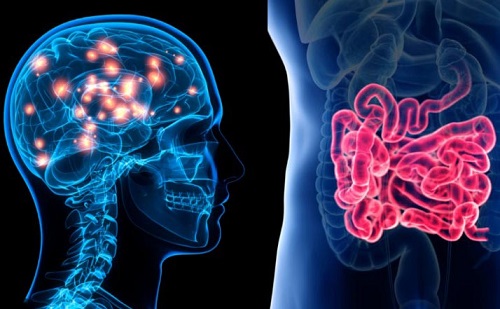Gut dysbiosis linked to SCARB2 deficiency impairs lipid absorption and exacerbates neurodegeneration
Nikhil Prasad Fact checked by:Thailand Medical News Team Aug 24, 2024 7 months, 2 weeks, 5 days, 22 hours, 13 minutes ago
Medical News: Unveiling the Gut-Neurodegeneration Link
Researchers from the Institute for Immunology and School of Basic Medicine at Tsinghua University, Peking University, and Shanghai Jiao Tong University Affiliated Sixth People’s Hospital in China have uncovered a crucial connection between gut health and neurodegenerative diseases linked to SCARB2 deficiency. This
Medical News report delves into their findings, which highlight how SCARB2 deficiency disrupts bile acid metabolism and triggers gut dysbiosis, ultimately leading to impaired lipid absorption and exacerbation of neurological impairments. These insights pave the way for potential therapeutic approaches that target gut health to mitigate the effects of neurodegeneration.
 Gut dysbiosis linked to SCARB2 deficiency impairs lipid absorption and exacerbates neurodegeneration
SCARB2 Deficiency: A Gateway to Gastrointestinal Dysfunction
Gut dysbiosis linked to SCARB2 deficiency impairs lipid absorption and exacerbates neurodegeneration
SCARB2 Deficiency: A Gateway to Gastrointestinal Dysfunction
The SCARB2 gene plays a pivotal role in various neurodegenerative conditions, including Gaucher disease (GD) and Parkinson’s disease (PD). However, a complete loss of SCARB2 function results in a rare and severe form of neurodegeneration known as progressive myoclonus epilepsy (PME). This condition is characterized by myoclonus, a neurological disorder involving sudden muscle jerks. In this study, the researchers explored the impact of SCARB2 deficiency on gastrointestinal function, revealing that it leads to significant gut dysbiosis, an imbalance in the gut microbiome that affects bile acid metabolism.
This, in turn, hyperactivates the Farnesoid X Receptor (FXR) in the intestine, impairing the renewal of epithelial cells and reducing lipid absorption.
Key Findings: Gut Dysbiosis and Impaired Lipid Absorption
The study presents several key findings that highlight the intricate relationship between SCARB2 deficiency, gut health, and neurodegeneration:
-Gut Dysbiosis in SCARB2 Deficiency: SCARB2-deficient mice exhibited marked gut dysbiosis, with a notable increase in bacteria from the Lactobacillus and Bifidobacterium genera. These bacteria are typically beneficial, but their excessive abundance led to heightened bile salt hydrolase (BSH) activity, disrupting bile acid metabolism and impairing lipid absorption.
-Impaired Intestinal Renewal: The hyperactivation of FXR in SCARB2-deficient mice resulted in a slower turnover of epithelial cells in the intestine. This impaired renewal process hindered the absorption of dietary lipids, particularly vitamin E, which is crucial for maintaining neurological health.
-Vitamin E Deficiency and Neuromotor Impairment: SCARB2 mutations were found to cause a severe reduction in vitamin E levels in both mice and human patients. This deficiency correlated with neuromotor impairments and neuropathy, underscoring the importance of vitamin E in preventing neurological decline.
-Therapeutic Potential of
Vitamin E Supplementation: Supplementing vitamin E or inhibiting FXR signaling in SCARB2-deficient mice alleviated neuromotor impairments and reduced the extent of neurodegeneration. These findings suggest that addressing nutritional deficits and gastrointestinal issues could offer therapeutic benefits for patients with SCARB2-associated neurodegeneration.
The Role of FXR in Gut-Liver Crosstalk
The study delved into the molecular mechanisms underlying the observed gastrointestinal dysfunction. The researchers discovered that the loss of SCARB2 disrupts the bile acid-microbiome feedback loop, leading to abnormal activation of FXR in the intestine. FXR, a major receptor for bile acids, plays a crucial role in regulating bile acid synthesis and lipid absorption. In SCARB2-deficient mice, the hyperactivation of FXR negatively impacted intestinal lipid absorption by downregulating key genes involved in fatty acid uptake. This impairment contributed to the age-dependent decline in lipid absorption observed in the study.
Implications for Neurodegenerative Diseases
The findings of this study have significant implications for the management of neurodegenerative diseases associated with SCARB2 deficiency. The researchers propose that targeting FXR signaling or addressing vitamin E deficiencies could improve neurological outcomes in patients with SCARB2 mutations. By focusing on gastrointestinal health and nutritional status, it may be possible to mitigate the progression of neuromotor impairments and neuropathy in affected individuals.
Moreover, the study emphasizes the importance of considering gut health in the broader context of neurodegenerative diseases. Gut dysbiosis and impaired intestinal function have been observed in various neurodegenerative conditions, including Alzheimer’s disease, PD, and amyotrophic lateral sclerosis. The researchers suggest that future investigations should explore whether similar mechanisms are at play in other neurodegenerative diseases, further highlighting the gut-brain axis as a critical area of study.
Conclusion: A New Avenue for Therapeutic Interventions
In conclusion, the research conducted by the teams at Tsinghua University, Peking University, and Shanghai Jiao Tong University has unveiled a novel mechanism linking SCARB2 deficiency to gastrointestinal dysfunction and neurodegeneration. The findings underscore the importance of maintaining gut health and addressing nutritional deficiencies to mitigate the effects of SCARB2-associated neurodegeneration. By targeting FXR signaling or supplementing essential nutrients like vitamin E, there is potential to improve the quality of life for patients with SCARB2 mutations.
The study findings were published in the peer-reviewed journal: Protein & Cell.
https://academic.oup.com/proteincell/advance-article/doi/10.1093/procel/pwae016/7651085
For more about gut dysbiosis, keep on logging to Thailand
Medical News.
Read Also:
https://www.thailandmedical.news/news/sars-cov-2-induced-gut-dysbiosis-possibly-behind-growing-cases-of-post-covid-insomnia
https://www.thailandmedical.news/news/warning-new-generation-artificial-sweetener-neotame-causes-dysbiosis-and-damages-gut-walls
